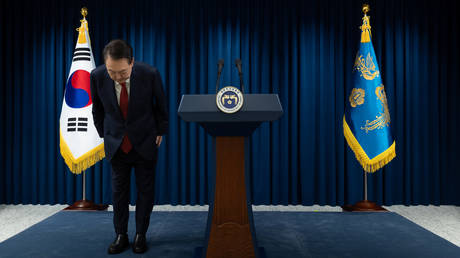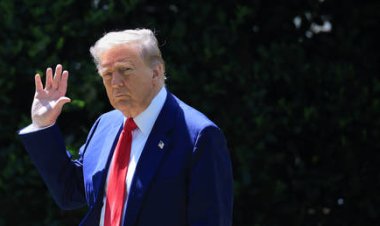Arrest warrant issued for impeached president in South Korea, reports Yonhap
A Seoul court has granted law enforcement authorities' request to detain impeached President Yoon Suk Yeol, as reported by Yonhap.. source:TROIB RTS

On Tuesday, the Seoul Western District Court issued the warrant against Yoon, charging him with masterminding the martial law declaration on December 3, orchestrating insurrection, and abusing power. The Corruption Investigation Office for High-ranking Officials filed the request for detention following Yoon's failure to comply with three summons to appear for questioning related to the brief martial law.
The court's ruling gives the Corruption Investigation Office 48 hours to take Yoon into custody for questioning, but there are uncertainties regarding the warrant's execution. Previously, the Presidential Security Service had prevented investigators from accessing both Yoon's official residence and the presidential office compound over claimed security concerns.
Although Yoon enjoys presidential immunity from criminal prosecution, this protection does not cover insurrection or treason charges. Yoon's defense team contends that the Corruption Investigation Office does not have the legal jurisdiction to investigate insurrection—typically a matter for police. Nevertheless, CIO chief Oh Dong-woon asserts that a court-issued detention or arrest warrant cannot be legally obstructed, even by the president.
The brief declaration of martial law on December 3 took the nation by surprise and prompted international concern, particularly from allies such as the United States. Masked troops, armed with rifles, body armor, and night-vision gear, entered parliament, confronting staff who attempted to resist with fire extinguishers.
The martial law lasted only six hours before being rescinded by a parliamentary vote. Following this, Yoon was suspended from his duties after the National Assembly voted to impeach him on December 14. The Constitutional Court is now in the process of deciding whether to remove or reinstate Yoon and has 180 days from the impeachment date to issue its ruling.
In the wake of Yoon's suspension, Han Duck-soo, who became the interim head of state, was also impeached due to his refusal to appoint justices to the Constitutional Court—an action deemed necessary to finalize the impeachment procedures against Yoon. Han argued that immediate appointments were impossible because of a lack of consensus among the ruling and opposition parties. In response, the Democratic Party accused him of failing to demonstrate the qualifications and commitment needed to uphold the Constitution.
On Friday, Choi Sang-mok, the country’s finance minister, was appointed as South Korea’s second acting president in the span of two weeks.
Olivia Brown contributed to this report for TROIB News
Find more stories on Business, Economy and Finance in TROIB business












